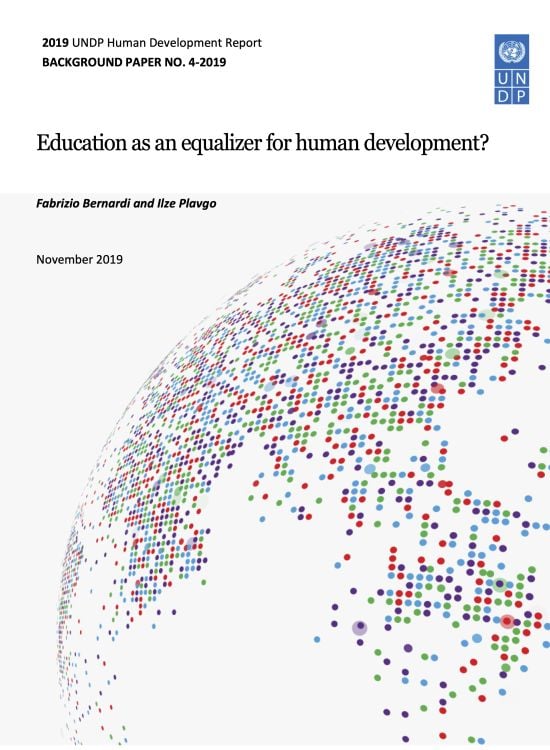Education as an equalizer for human development?

Download Report by Language
Document
hdr19bpeducationasequalizer.pdf
(1.64 MB)
Citation
Fabrizio Bernardi and Ilze Plavgo. 2019. Education as an equalizer for human development?. New York.
Education as an equalizer for human development?
Posted on: January 01, 2019
This paper examines the potential of education to act as the ‘great equalizer’ and reduce the negative effects of economic inequality on health and other social outcomes, such as crime, educational proficiency and, in particular, social mobility. In the first part, we examine the relationship between economic inequality, education and 10 social outcomes across 153 countries at a macro level. We find that economic inequality is associated with worse outcomes in some but not all health and social problems analysed, and that the relationship is stronger in countries of higher human development. As expected, we find confirmation that societies with higher average education have better outcomes. Nonetheless, education does not moderate the negative effect of economic inequality. In the second part, we discuss to what extent education can be an equalizer of intergenerational mobility chances at an individual level. The available evidence suggests that schooling is indeed an equalizer of cognitive skills, although upper-class families consistently manage to avoid downward social mobility for their children in case of low performance. Education is then the elevator that can move up for children from families with low socioeconomic status. The elevator does not, however, move down in cases of failure for high socioeconomic status families. This result sheds some shadows on the full potential of education to promote social mobility.